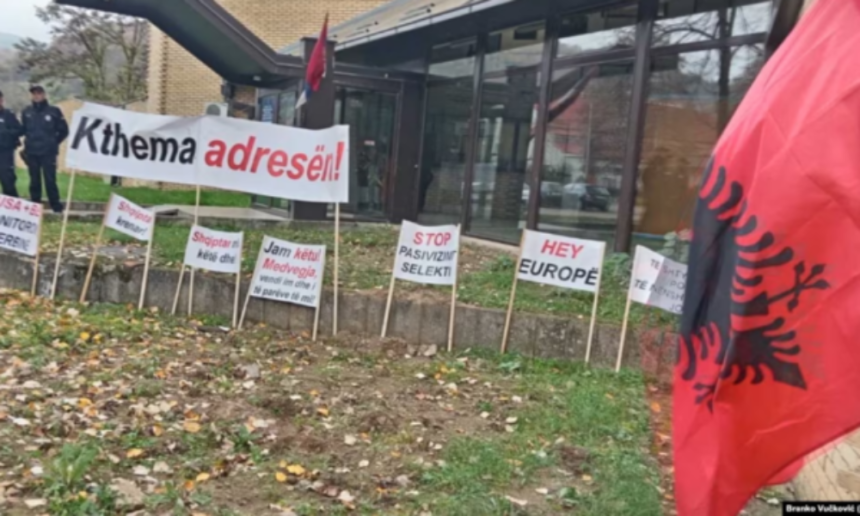Serbia is facing growing international scrutiny as a legal challenge is now set to be heard by the European Court of Human Rights in Strasbourg over the controversial practice of address deactivation in the Preševo Valley. The case, brought forward by Safet Demiri, a resident of Banje in southern Serbia, highlights the ongoing discrimination faced by ethnic Albanians in the region, especially in the municipalities of Preševo, Bujanoc, and Medvegjë, collectively known as the Preševo Valley.
What is Address Deactivation in Serbia?
Address deactivation is a practice that began in Serbia in 2011, whereby the government removes citizens from the official register if they are found to be living outside their registered address. This has disproportionately affected the Albanian minority in southern Serbia. If an address is deactivated, the individual loses their Serbian citizenship, along with essential civil rights such as the ability to vote, own property, access health insurance, and work legally.
The Case of Safet Demiri
Demiri, a 46-year-old businessman with properties and a telecommunications company in Medvegjë, has been fighting this issue for years. Despite living and working between Austria and Serbia, he maintains strong ties to his ancestral home. His address in Medvegjë was deactivated in 2019 without proper verification, leaving him without his Serbian citizenship and critical rights.
“I have evidence that I was in a police station when they claim to have visited my home,” Demiri said. He believes the Serbian authorities never made an effort to verify his residency, as required by law. After years of legal battles, his final appeal to the Serbian Constitutional Court was rejected in November 2023.
International Reaction and Legal Options
The case has drawn significant attention, both within Kosovo and internationally. The European Union and human rights organizations have expressed concerns about the widespread practice of address deactivation, which has been described as a form of ethnic cleansing through administrative means. Ethnic Albanians in the Preševo Valley have long struggled with this issue, often unable to access basic civil rights due to the deactivation of their addresses.
Demiri now plans to take his case to the European Court of Human Rights, a step that could set a precedent for similar cases in the region. His lawyer, Aleksandar Olenik, confirmed that the appeal will be filed within the next two months.
Why This Issue Matters
The case is not only about the rights of one individual but reflects a broader pattern of systemic discrimination against ethnic Albanians in southern Serbia. The practice of address deactivation is a tool used by the Serbian government to exert control over the ethnic composition of the region. It affects thousands of ethnic Albanians, who are stripped of their rights and placed at a disadvantage politically, economically, and socially.
This legal battle also shines a light on Serbia’s obligations under international law, particularly the European Convention on Human Rights. If Demiri’s case is successful, it could open the door for other individuals in southern Serbia to seek justice and potentially reverse the deactivation of their addresses.
Political and Legal Implications for Serbia
This issue has long been ignored at the state level in Serbia, but with Demiri’s case making it to Strasbourg, the international community is demanding action. The European Union and the United States have repeatedly expressed concerns about the treatment of ethnic minorities in Serbia, particularly Albanians in the south.
Kosovo President Vjosa Osmani has called for international pressure on Serbia to respect the rights of Albanians in the region. Serbian President Aleksandar Vučić, however, has downplayed the issue, insisting that Serbia is a democratic country and that no one is being oppressed.
The Broader Impact on the Preševo Valley and Serbia’s EU Accession
Address deactivation is part of a broader political strategy to undermine the rights of ethnic Albanians in southern Serbia. According to reports from the Helsinki Committee for Human Rights, the practice is a tool for ethnic cleansing, using administrative measures to erase the presence of Albanians in the region.
The outcome of Demiri’s case could be pivotal for the future of the Albanian minority in Serbia. It may also have implications for Serbia’s European Union accession process. International bodies have warned Serbia that its treatment of ethnic minorities must improve before it can move forward with EU integration.
A Call for Action
Serbia’s policy on address deactivation has sparked protests throughout the Preševo Valley, with local Albanians demanding recognition of their rights, including voting rights and property ownership. Many families who have had their addresses deactivated have been unable to take legal action due to financial constraints.
Shaip Kamberi, the only Albanian representative in the Serbian Parliament, has called for stronger international intervention to force Serbia to stop the discriminatory practice. He also advocates for the establishment of a fund to support individuals who wish to pursue legal action in Strasbourg.
Conclusion: A Landmark Case for Human Rights
As the legal process moves forward, the case of Safet Demiri in Strasbourg is expected to become a landmark issue for human rights in Serbia and the Balkans. It is a test of the European Court’s commitment to upholding the rights of ethnic minorities and a moment of reckoning for Serbia’s treatment of its Albanian citizens. The outcome of this case could have a lasting impact on the lives of thousands of people who have been denied their basic civil rights in southern Serbia.







